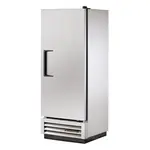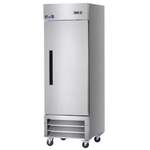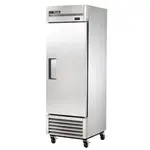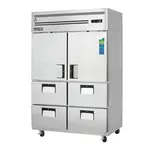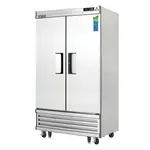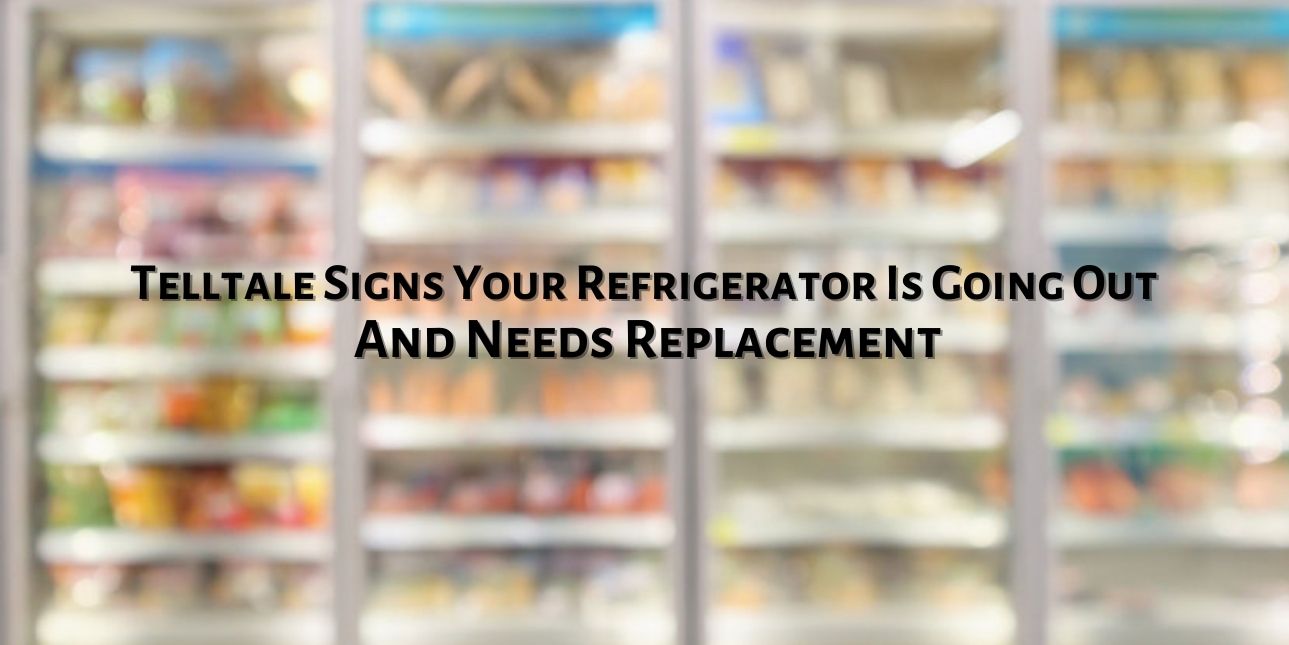
Refrigerators are integral to the smooth functioning of a commercial kitchen, since they form the backbone of cold storage and help you keep most of your material fresh. Needless to say, it’s important to keep track of certain refrigerator signs if your existing unit is particularly old, or in case you notice it isn’t functioning up to the mark. So, how do you know when your refrigerator is going out, and how do you tell when to replace the refrigerator?
If you notice signs like food not lasting as long, an extremely noisy refrigerator, or even moist paneling,your refrigerator might be going out. While repairs and detailed diagnoses of your unit’s problem might require the presence of a professional, several obvious refrigerator signs can tell you that it’s time for a replacement. Read on as we discuss several simple methods on how to tell if your refrigerator is broken, so you can save both time and money.
Refrigerator Signs To Watch Out For
Here’s how to tell if your refrigerator is broken by keeping an eye out for these signs:
- The refrigerator is very loud & noisy
All refrigerators come with motors that enable the circulation of cool air throughout the fridge. Motors can be especially loud on very warm days as they need to work a little harder than usual - this is a normal sign provided this occurs occasionally. However, a constantly loud refrigerator indicates an overworked motor. Since the motor regulates the internal temperature and environment of the refrigerator, its consistent functioning is ideal. An overworked motor can hint at several problems including those of the condenser and gasket seals of the refrigerator.
- The refrigerator is extremely quiet and barely makes any noise
As opposed to the previous sign that your refrigerator is going out, a quiet refrigerator indicates an internal motor that is barely functional. The regular hum from the refrigerator indicates the running of the motor from time to time to redistribute cold air throughout the insides, however, prolonged periods of quiet indicate a malfunctioning motor that doesn’t work long enough. This can lead to spoiled food and also the appearance of condensation on the inner parts of the refrigerator. You will need a professional technician to help you diagnose the real cause of the motor malfunction.
- Food goes bad very soon
Food can go bad sooner than the expiration date mentioned on the label for a variety of reasons. One of them could be motor malfunctions, however, food spoilage is also linked to refrigerator signs such as broken gasket seals or cracked panels. This is one of the most important signs to watch out for in case you’re wondering how to tell if your refrigerator is broken. Replacement or repairs for the fridge will depend on its age and the cause of the problem.
- The rear coils are excessively hot
Refrigerators radiate some amount of heat by shunting it out from the inside and maintaining cool temperatures within, so it’s obvious that the rear coils might be warm to the touch. However, a constantly high temperature radiating from these coils indicates an inefficient condenser. Since condenser replacements can be expensive in case your unit is not under warranty, you should weigh the cost of repairs vs. the cost of a new unit and then decide on your establishment's needs.
- There are water droplets on the outer panels
When you notice there’s condensation on the outer portions of the fridge, it often means there’s a problem with the gasket seal. This sign is commonly seen in refrigerators that are nearing the end of their operational lifespan. The gasket seals on refrigerator doors are meant to keep the cool air within the refrigerator and act as a perfect barrier to the warm air outside the fridge. A malfunctioning gasket seal will also lead to increased energy consumption by the refrigerator since the condenser has to work harder to maintain the internal temperature. In case you have a broken seal and are thinking ‘when should I replace my refrigerator?’ The outcome depends purely on your unit’s age. It’s better to have the doors repaired in case your refrigerator is seven years old or less.
- Excess frost buildup
An increased buildup of frost in the refrigerator can indicate an issue with the internal temperature settings and equilibrium. This issue can arise due to an increased inflow of warm air into the refrigerator, which can be mitigated by not leaving the doors open for too long. Gasket seal malfunctions can also lead to this problem as they can cause a prolonged and constant flow of warm air into the refrigerator. Frosty refrigerators can also occur due to a change in the climate. However, in case you’ve ruled these out, it might be wise to get in touch with a professional to diagnose the problem.
- Breakage & cracks in the outer walls of the shell
The outer panels perform the same function as gasket seals and keep the cool air within the refrigerator. The side panels in some models are also important for the heat exchange parts of the fridge. Cracks often appear in refrigeration units that have undergone physical damage or when they’re old. These breaks and cracks in the paneling are difficult to fix and will have to be looked at by a professional. In case your unit is old, it would be a better option to replace the refrigerator instead of replacing the panels on your existing unit.
- The refrigerator is over a decade old
In case you’re wondering about when should you replace your refrigerator, every 10 years would be a reasonable duration. Refrigerators often have functional lifespans that last between one and two decades. In case your unit is older than a decade, it might be wise to switch to newer models of commercial refrigerators and freezers instead. Costly and frequent repairs on older models can be a drain on your budget and are not viable in the long term.
How to Tell If Your Refrigerator Is Broken - A Few Simple Diagnostic Aids
If you’ve noticed any of the above signs with your commercial refrigeration unit, you can use these simple diagnostic aids before you reach out to the professionals:
- Check your refrigerator’s thermostat and internal settings. If they’re not set to the requirements concurrent with the weather, you might notice refrigerator signs that seem like potential malfunctions.
- Ensure food boxes and large items are not blocking any of the internal vents in the fridge. This can obstruct air circulation within the unit.
- Listen to the motor and observe if the temperature is commensurate with the amount of noise the motor is making. In case your refrigerator is loud and the temperature is still higher than usual, there might be a problem with the unit.
- Check for dust clogging the external coils after pulling the refrigerator away from the walls. Any obstructions to the coils can make the condenser work harder than it should and mimic problems. Use a vacuum cleaner to clean the coils and rid the unit of dust.
In case you’ve been thinking about when to replace the refrigerator at your establishment, it might be wise to draw up the differences between the prices of repairs vs. purchasing a new model. Looking out for the above signs will help you take a call. Also include other variables such as the age of the fridge, warranty, and maintenance periods for each repair.



